Home
Pubs in England would be allowed to reopen for table service from 4 July, Boris Johnson, the Prime Minister, told the Commons, his words being met by an exclamation from one MP of ‘Hallelujah’. But drinkers would be expected to supply names and addresses before being served. Restaurants, museums, galleries, cinemas, hotels and hairdressers could also reopen, but not bowling alleys. Churches could reopen for services, including weddings, with a limit of 30 people, provided no one sang. The ‘two-metre rule’ was reduced by way of advice to one metre, to be combined with mitigating measures, such as facing in different directions. The government discontinued its daily televised briefings.
At the beginning of the week, Sunday 21 June, total deaths from Covid-19 stood at 42,589; a week earlier the total had been 41,662. After ditching its own contact-tracing technology, tested on the Isle of Wight, the government said that an Apple-Google model could be ready in the autumn, though it might not include contact-tracing functionality. People from two households at a time were to be allowed to meet indoors. Extremely vulnerable people in England were told they need not shield themselves after 1 August; but unless they had to stay at home, they would no longer be eligible for sick pay.
Public debt rose to £1,950 billion, greater than GDP for the first time since 1963. In May a third of total sales were made online. Intu, the company that owns 20 shopping centres including Lakeside in Essex, the Trafford Centre in Manchester and one in the middle of Watford, teetered on the brink of administration. Rishi Sunak, the Chancellor of the Exchequer, considered cutting VAT. Three men were stabbed to death in a park in Reading on Saturday evening; police called it a terrorist incident and questioned Khairi Saadallah, aged 25, who came to Britain from Libya in 2012 and had been brought to the attention of MI5 last year. Gay media said the dead men were gay. Two men, aged 21 and 36, were shot dead in the night during an outdoor party attended by hundreds in Moss Side, Manchester, following a peaceful daytime event associated with the Black Lives Matter movement in a nearby park.
Abroad
Total deaths attributed to coronavirus by dawn on Sunday 21 June reached 466,266, an increase of 7.8 per cent on a week earlier. The United States had seen the most deaths, with 121,980, but was in ninth place globally in the number of deaths per head of population. Brazil, though 17th in the rankings of countries by deaths per head of population, had seen 50,058 deaths. A federal judge in Brazil ruled that President Jair Bolsonaro must wear a protective mask in public spaces in the capital, Brasilia. Saudi Arabia closed the Hajj, the annual pilgrimage to Mecca, to foreigners. German authorities reimposed lockdown restrictions on 640,000 people in two districts in North Rhine-Westphalia, in one of which 1,500 workers at an abattoir tested positive. A resurgence of Covid-19 saw the reintroduction of restrictions in some parts of Lisbon. Police in Nigeria rescued 300 people locked in a rice-processing factory in Kano since lockdown began at the end of March; they had been promised a bonus of £10 a month on top of their £55 salary. Novak Djokovic, the tennis player, was found to have Covid-19, as were ten of the Pakistan cricket squad due to tour England next week.
Protestors failed in an attempt to pull down the bronze equestrian statue of President Andrew Jackson opposite the White House. Others in San Francisco had more luck with statues of President Ulysses S. Grant, the Union general; of Francis Scott Key, the author of the US national anthem, ‘The Star Spangled Banner’; and of St Junípero Serra, the Franciscan missionary canonised in 2015. Jenny Durkan, the Mayor of Seattle, said that following some rapes and burglaries, and three shootings over the weekend, the city authorities would take back the so-called Capitol Hill Occupied Protest zone abandoned by police on 8 June.
India expelled half the staff at Pakistan’s high commission in Delhi, accusing diplomats of spying and dealing with terrorists. America imposed economic sanctions on named individuals in Syria including Asma, the wife of President Bashar al-Assad. German prosecutors arrested Markus Braun, who had resigned as the chief executive of the payments processor Wirecard after auditors questioned €1.9 billion missing from its accounts. CSH
Got something to add? Join the discussion and comment below.
Get 10 issues for just $10
Subscribe to The Spectator Australia today for the next 10 magazine issues, plus full online access, for just $10.
You might disagree with half of it, but you’ll enjoy reading all of it. Try your first month for free, then just $2 a week for the remainder of your first year.

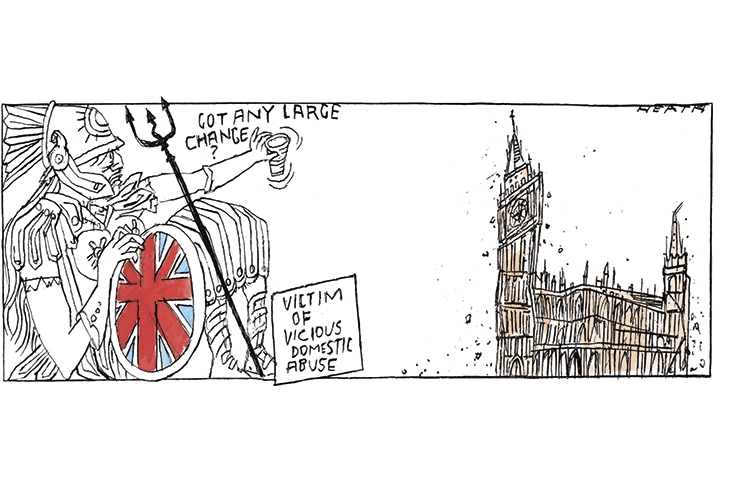
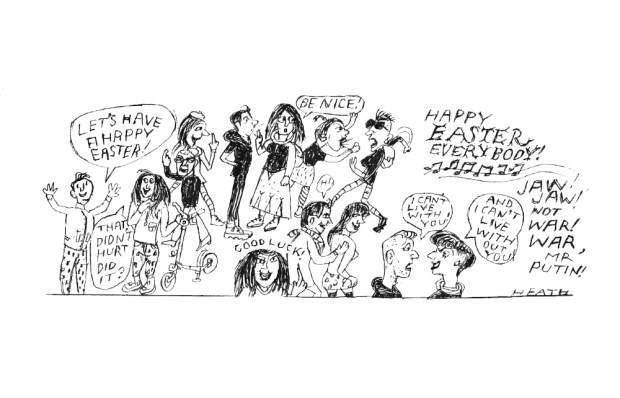
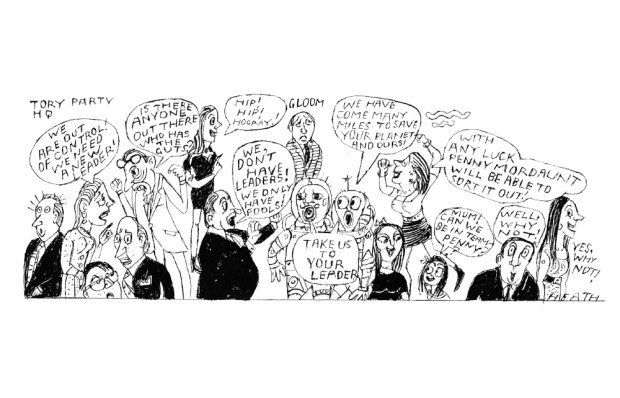

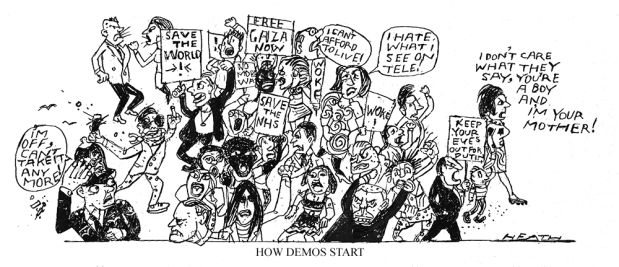
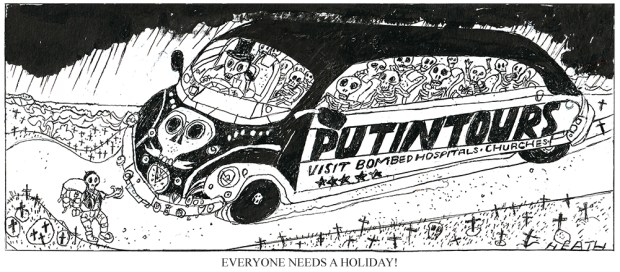
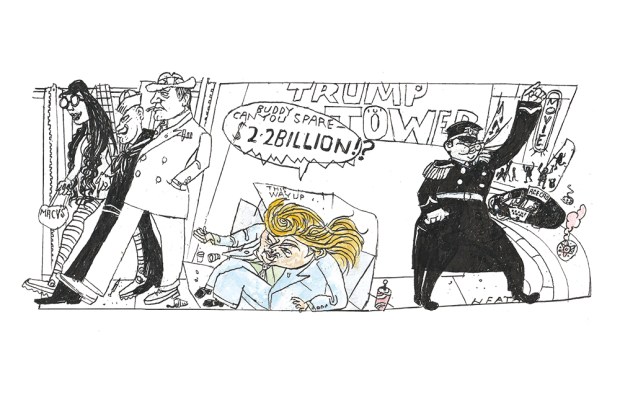






Comments
Don't miss out
Join the conversation with other Spectator Australia readers. Subscribe to leave a comment.
SUBSCRIBEAlready a subscriber? Log in